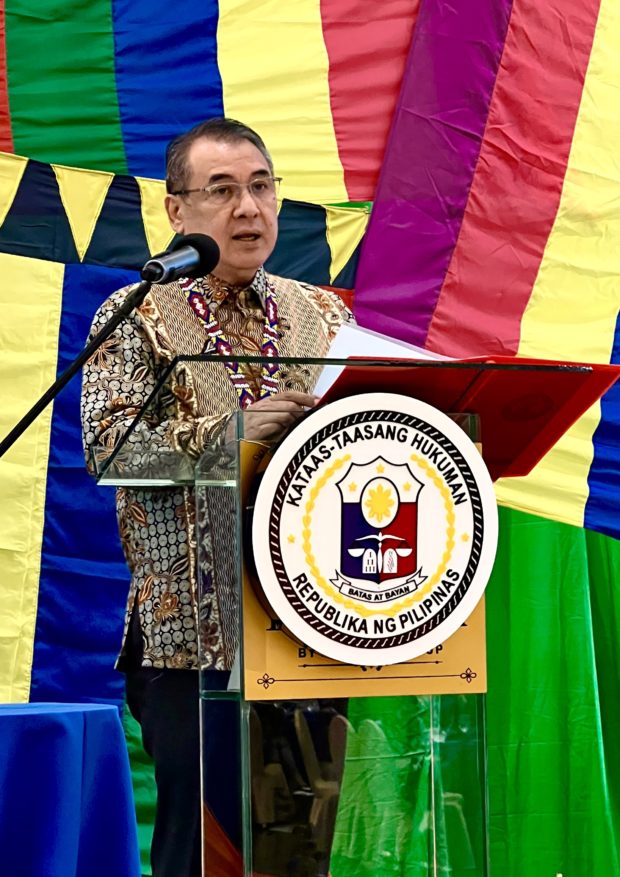
Chief Justice Alexander G. Gesmundo gives the keynote address on the first day of the 14th Biennial National Convention and Seminar of the Court Legal Researchers Association of the Philippines in Zamboanga City. (Courtesy of the Supreme Court Public Information Office)
MANILA, Philippines —The Supreme Court is thinking outside the box and looking to technology for a solution to speed up the court legal research system.
Chief Justice Alexander Gesmundo believes that using artificial intelligence can help boost efficiency and support the fast disposition of cases.
With the help of AI, judges will have access to the best resources to craft wiser decisions.
“Napakahalaga ng court legal researchers sapagkat sa inyo umaasa ang mga hukom. Kapag magaling ang researcher ng judge, magaling siyang makakapag-desisyon,” Gesmundo said in statement Friday.
(The work of legal researchers is essential because judges depend on you. A good researcher will help the judge decide better.)
Gesmundo shared how SC’s blueprint for judicial reform will boost the productivity of courts and their legal researchers during the 14th Biennial National Convention and Seminar of the Court Legal Researchers Association of the Philippines (CLERAP) held in Zamboanga City last Feb. 15.
“The Strategic Plan for Judicial Innovations 2022-2027 (SPJI) will, among others, allow us to ride this wave of technological advancement, capitalizing on AI not just for court operations but also for legal research. This, in turn, will facilitate the speedy disposition of cases,” he told 300 legal researchers at the event.
Citing from the SPJI notes, Gesmundo added that AI-powered applications would enable faster and easier access to legal references.
“Court legal research is so often like looking for a needle in haystacks upon haystacks—and AI could be the magnet that makes that search faster and easier, to the benefit of the people we ultimately serve,” he explained.
Moreover, he said that AI-enabled tech would generate analysis based on words and phrases (including their context) from previous cases. In turn, it will predict and suggest possible outcomes for new cases.
“Today, I call on you to fully embrace technology in this undertaking and in performing your duties. Harness it to work more efficiently and expeditiously and invest in the skills and resources needed to enable the shift that we envision,” the Chief Justice said.
Also present during the three-day convention with the theme “Strengthening Legal Research Amidst Challenges and Adversities” were Associate Justice Ramon Paul L. Hernando, Associate Justice Antonio T. Kho, Jr., Deputy Clerk of Court and Chief Technology Officer Atty. Jed Sherwin G. Uy.
RELATED STORIES:
SC Justice Leonen: Corruption still exists in courts
Romantic outpouring of SC love letters: When ‘hugot lines’ blend well with court rulings

